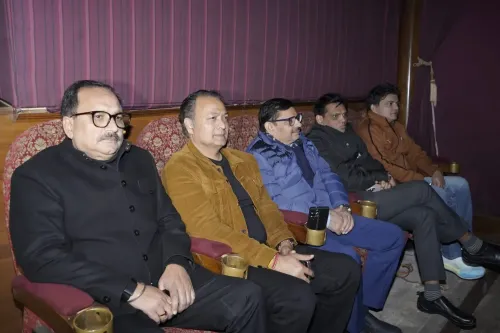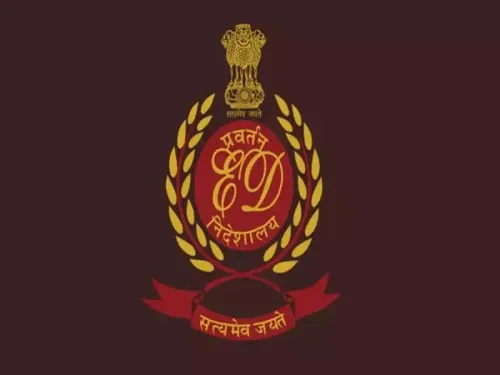Why did the Uttarakhand Assembly face opposition uproar and adjournment?

Synopsis
Key Takeaways
- Uttarakhand Assembly faced an indefinite adjournment.
- Opposition protests highlighted discontent with the ruling party.
- Significant bills passed, including the Uniform Civil Code Amendment.
- Protests included demands for changes in law enforcement.
- Political drama raises questions about governance.
Dehradun, Aug 20 (NationPress) The Monsoon Session of the Uttarakhand Assembly, which started on Tuesday in Bhararisain—the summer capital of the state—was abruptly suspended indefinitely on Wednesday, just two days into its planned five-day schedule.
The session only lasted for a brief duration of two hours and 40 minutes over both days. It was marked by intense protests from the opposition Congress, while the ruling BJP government swiftly pushed through nine notable bills along with a supplementary budget.
From the outset, the Congress called for an urgent discussion regarding the state’s disaster management and law and order issues under Rule 310. Their request was turned down, leading to rising tensions as opposition MLAs tore papers and shook microphones, vocalizing their discontent with slogans inside the Assembly. They condemned the BJP government for what they termed as authoritarianism and electoral misconduct.
Congress leaders, including Leader of Opposition Yashpal Arya and senior MLA Pritam Singh, held an overnight sit-in within the Assembly premises. Attempts by Chief Minister Pushkar Singh Dhami to mediate were unsuccessful.
The chaos continued into Wednesday. Regardless of the disturbances, the government managed to pass nine vital bills and a supplementary budget totaling Rs 5,315.89 crore.
Significant legislations that were passed included the Uniform Civil Code (Amendment) Bill, the Freedom of Religion and Unlawful Conversion (Amendment) Bill, and the Uttarakhand Minority Education Bill, all of which indicate major legal and social transformations within the state.
The UCC Amendment Bill, approved by voice vote, implements stricter regulations on live-in relationships, including enhanced penalties for violations.
The amended Anti-Conversion Law now allows life imprisonment for individuals found guilty of coercive or deceitful religious conversions.
The Minority Education Bill creates an official authority for minority communities, facilitating formal acknowledgment and support for madrasas.
Meanwhile, Congress legislators maintained their sit-in protest into Wednesday morning, standing firm until their demands were addressed. These demands included the ousting of the Nainital District Magistrate, the suspension of the Senior Superintendent of Police (SSP), and the retraction of legal cases against party leaders.
As the impasse persisted, Assembly Speaker Ritu Bhushan Khanduri adjourned the House indefinitely.
The nine key bills approved by the Uttarakhand Assembly are:
- The Uttarakhand Supplementary Appropriation Bill, 2025
- The Uttarakhand-Uttar Pradesh Shri Badrinath and Shri Kedarnath Temples (Amendment) Bill, 2025
- The Uttarakhand Freedom of Religion and Prohibition of Unlawful Conversion (Amendment) Bill, 2025 (Anti-Conversion Bill)
- The Uttarakhand Private Universities (Amendment) Bill, 2025
- The Uttarakhand Witness Protection Repeal Bill, 2025
- The Uttarakhand Minority Education Bill, 2025 (Minority Educational Institutions Bill)
- The Uttarakhand Uniform Civil Code (Amendment) Bill, 2025
- The Uttarakhand Panchayati Raj (Amendment) Bill, 2025
- The Uttarakhand Loktantra Senani Samman Bill, 2025









